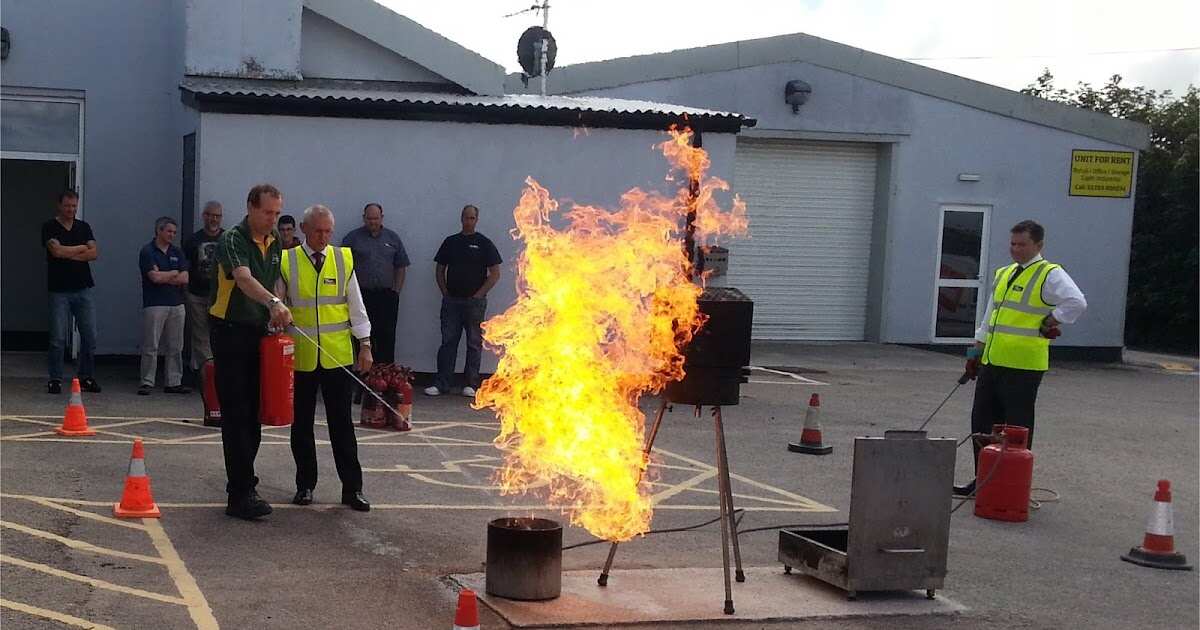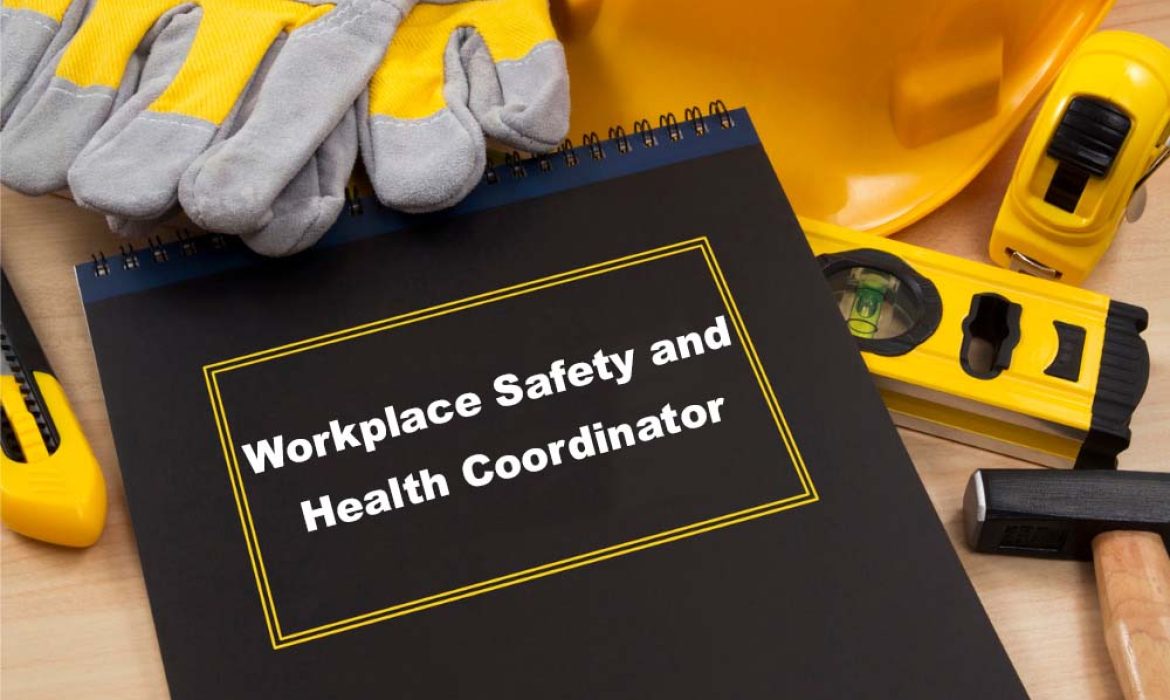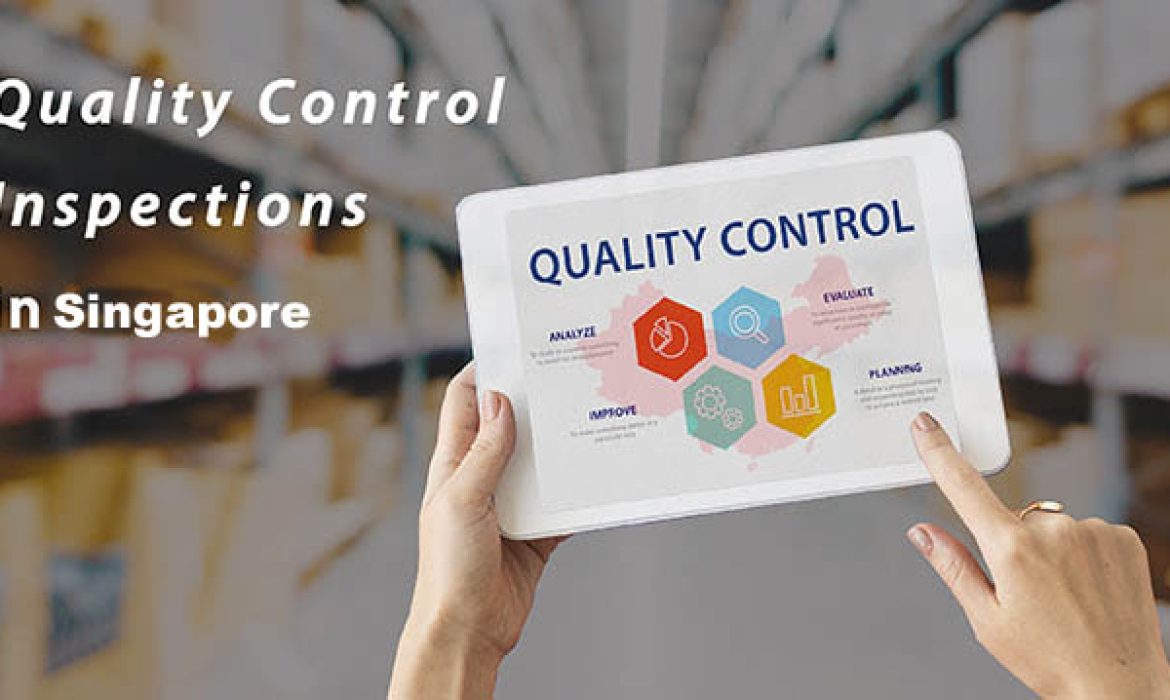Best Fire Safety Managers (FSM) Service in Singapore
Fire safety is a critical aspect of business and residential property management in Singapore. With high-rise buildings, commercial spaces, and industrial hubs, the risk of fire incidents is ever-present. This is where Fire Safety Managers (FSM) play a crucial role. With strict regulations in place, hiring a Fire Safety Manager (FSM) is essential to ensure compliance and protection against fire hazards.
If you’re searching for the best Fire Safety Managers service in Singapore for 2025, this guide will help you understand their importance, responsibilities, and how to choose the right service for your needs.
What is a Fire Safety Manager (FSM)?
A Fire Safety Manager (FSM) is a certified professional responsible for implementing and maintaining fire safety protocols in buildings. Their key roles include:
- Conducting fire risk assessments
- Organizing fire drills and training sessions
- Ensuring compliance with Singapore Civil Defence Force (SCDF) regulations
Why Do You Need an FSM Service in Singapore?
Hiring a Fire Safety Manager in Singapore is not just about compliance; it also enhances overall safety. Here are some key reasons why you need an FSM service:
- Regulatory Compliance: The Fire Safety Act mandates that certain buildings must appoint an FSM to oversee fire safety measures.
- Emergency Preparedness: FSMs conduct fire drills and ensure that occupants are well-prepared for emergencies.
- Fire Risk Assessment: They identify potential fire hazards and implement mitigation strategies.
- Liaison with Authorities: FSMs work with the SCDF to ensure compliance with fire safety regulations.
- Reduction in Property Damage: Effective fire safety measures can significantly reduce damage in case of a fire.
Roles and Responsibilities of an FSM

- Conduct fire risk assessments.
- Implement fire evacuation plans.
- Conduct regular fire drills.
- Ensure compliance with local fire safety laws.
- Coordinate with emergency services.
Legal Requirements for Fire Safety in Singapore
The Fire Safety Act in Singapore mandates that certain buildings must appoint an FSM. Failure to comply can lead to penalties. The Singapore Civil Defence Force (SCDF) enforces these regulations to enhance public safety.
How to Choose the Best FSM Service in Singapore?
Consider the following factors:
- Experience and qualifications.
- Customer reviews and testimonials.
- Cost of service.
- Compliance with SCDF regulations.
Top FSM Service Providers in Singapore
Here, we outline Singapore’s top FSM service providers, renowned for their professional fire safety solutions. These companies have a history of providing dependable services that align with local regulations and international safety standards.
Best FSM Company Right Now ProSkill Workforce Pte Ltd
Overview of ProSkill Workforce Pte Ltd
ProSkill Workforce Pte Ltd is known for its commitment to customer satisfaction and rigorous safety protocols, ensuring reliable FSM services across diverse sectors.
Core Services
- Fire Safety Consultation: Expert consultations to identify fire risks and implement protective measures.
- Customized Fire Safety Plans: Tailored safety plans to meet unique client requirements.
- 24/7 Emergency Support: Rapid response support during fire emergencies.
Why ProSkill Workforce Pte Ltd is Highly Rated
ProSkill Workforce Pte Ltd Company D’s 24/7 support and focus on client satisfaction make it a dependable FSM provider in Singapore.
Qualities of an Excellent FSM
- Attention to detail – Identifies potential fire hazards.
- Strong communication skills – Educates employees on fire safety.
- Quick decision-making – Acts fast in emergencies.
Fire Safety Training and Certifications

FSMs undergo rigorous training, including:
- SCDF-approved courses
- Workplace safety certifications
- Emergency response planning
Common Fire Hazards and Prevention Tips
- Overloaded power sockets – Avoid using multiple devices on a single outlet.
- Flammable materials – Store them properly.
- Blocked fire exits – Keep pathways clear at all times.
Cost of Hiring a Fire Safety Manager in Singapore
The cost varies based on:
- Building size and complexity
- Experience of the FSM
- Additional services provided
On average, hiring an FSM in Singapore ranges from SGD 1,500 to SGD 5,000 per month.
How FSMs Work with Emergency Response Teams?
During a fire, FSMs coordinate with firefighters, building occupants, and medical teams to ensure a swift and organized response.
The Future of Fire Safety Management in Singapore
With advancements in technology, FSMs are now integrating AI-powered fire detection systems and smart alarms for enhanced safety measures.
Customer Reviews and Testimonials
Many businesses and property owners commend FSM services for their proactive approach and efficiency in ensuring fire safety.
Conclusion
A Fire Safety Manager is an essential figure in ensuring the safety of people and property in Singapore. As fire hazards continue to be a concern, hiring a qualified FSM can make a significant difference. Whether you’re a business owner or a building manager, investing in the right FSM service ensures compliance with fire safety laws and provides peace of mind.
Looking for the best Fire Safety Manager service in Singapore? Choose wisely and stay safe!
FAQs About Fire Safety Managers
1. What qualifications should a Fire Safety Manager have?
FSMs should have SCDF-approved certifications and relevant workplace safety training.
2. Are Fire Safety Managers mandatory in Singapore?
Yes, under the Fire Safety Act, specific buildings are required to appoint an FSM.
3. Can a company train its own Fire Safety Manager?
Yes, but they must undergo SCDF-approved training and certification.
4. What are the penalties for not having an FSM?
Failure to appoint an FSM can result in fines and legal actions from SCDF.
5. How often should fire drills be conducted?
At least once every six months to ensure preparedness.
Check My Other Popular Service
Best Environmental Control Officers in Singapore
Have you ever wondered who ensures that our surroundings remain clean, safe, and free from potential health hazards? Meet the Environmental Control Officers (ECOs)—the unsung heroes responsible for keeping Singapore’s environment in top shape.
From monitoring hygiene in construction sites to enforcing health regulations, these professionals play a crucial role in safeguarding public health. Let’s dive deeper into their responsibilities, top ECOs in Singapore, and why their work is so vital.
Who Are Environmental Control Officers?
Environmental Control Officers (ECOs) are professionals responsible for ensuring that environmental health and safety standards are met in various industries. They work to prevent pollution, manage waste, and enforce hygiene practices.
What Does an Environmental Control Officer Do?
An Environmental Control Officer is responsible for monitoring, assessing, and implementing strategies to reduce an organization’s environmental impact. Their duties include:
- Conducting environmental assessments
- Ensuring compliance with local, national, and international environmental laws
- Promoting sustainable practices
- Reporting violations and recommending corrective actions
The Importance of Environmental Control Officers
- Protecting Ecosystems: ECOs help preserve biodiversity by preventing pollution and habitat destruction.
- Reducing Carbon Footprint: They implement strategies to minimize emissions and energy consumption.
- Ensuring Public Health: By controlling pollution levels, ECOs contribute to cleaner air, water, and soil.
- Promoting Corporate Social Responsibility: Businesses benefit from improved reputation and compliance with sustainability standards.
Key Responsibilities of Environmental Control Officers

- Conducting Environmental Audits – Regularly assessing environmental risks.
- Ensuring Regulatory Compliance – Keeping up with environmental laws and ensuring compliance.
- Managing Waste Disposal – Implementing waste reduction and recycling programs.
- Supervising Pollution Control Measures – Reducing air, water, and soil pollution.
- Developing Sustainability Strategies – Creating eco-friendly initiatives for organizations.
- Educating Employees and Stakeholders – Conducting environmental training sessions.
- Handling Environmental Emergencies – Responding to spills and hazardous material incidents.
- Data Collection and Reporting – Analyzing environmental impact data and preparing reports.
- Collaborating with Government Agencies – Working with regulatory bodies on compliance matters.
- Conducting Risk Assessments – Identifying potential environmental hazards.
Qualifications and Skills Required
To become an ECO in Singapore, one must possess:
- A recognized diploma or degree in environmental science or a related field.
- Certification from the National Environment Agency (NEA).
- Strong analytical and problem-solving skills.
- Excellent communication abilities.
- A degree in environmental science, engineering, or a related field.
- Knowledge of environmental laws and policies.
- Experience in environmental impact assessment.
How to Choose the Best Environmental Control Officer?
When selecting an ECO for a project, consider:
- Certifications and Experience
- Reputation and Client Reviews
- Knowledge of Local Regulations
- Ability to Provide Comprehensive Reports
Top Environmental Control Officers in Singapore
Singapore has some qualified ECOs, who are employed by top environmental agencies. One of the well-known professionals in this field is proskillworkforce.com. This resource does a great job. So, we can add it to your wish list and contact them today to avail their services.
Challenges Faced by Environmental Control Officers

ECOs deal with various obstacles, such as:
- Resistance from businesses reluctant to comply with regulations.
- Keeping up with changing environmental laws.
- Managing large-scale projects with limited resources.
Government Regulations and Guidelines
The National Environment Agency (NEA) oversees environmental regulations in Singapore. Key regulations include:
- Environmental Protection and Management Act
- Public Health and Safety Guidelines
- Construction Environmental Management Standards
Future of Environmental Control in Singapore
With Singapore’s push toward sustainability, the demand for ECOs is expected to rise. Future trends include:
- Increased use of technology and AI for monitoring.
- Stricter enforcement of waste management regulations.
- Greater emphasis on green building standards.
How to Become an Environmental Control Officer in Singapore?
- Obtain a relevant degree or diploma.
- Enroll in an NEA-accredited course.
- Gain experience through internships or apprenticeships.
- Pass the required certification exams.
- Apply for ECO positions in recognized organizations.
Conclusion
Environmental Control Officers are essential in maintaining Singapore’s reputation as a clean and green city. Their role in ensuring compliance with hygiene and environmental standards cannot be overstated.
As Singapore continues to grow, the demand for skilled ECOs will only increase. Whether you are considering a career as an ECO or looking to hire one, understanding their role is the first step in contributing to a healthier and safer environment.
Frequently Asked Questions (FAQs)
1. What does an Environmental Control Officer do?
An ECO ensures environmental health standards are met by monitoring hygiene, managing waste, and enforcing regulations in construction and industrial sites.
2. How do I become an Environmental Control Officer in Singapore?
To become an ECO, you need a diploma or degree in environmental science, complete an NEA-accredited course, and obtain certification.
3. Why are Environmental Control Officers important?
They help prevent pollution, maintain hygiene standards, and ensure businesses comply with environmental regulations, promoting public health and safety.
4. What industries require Environmental Control Officers?
Industries such as construction, manufacturing, healthcare, and waste management require ECOs to monitor and enforce environmental safety standards.
5. How much does an Environmental Control Officer earn in Singapore?
Salaries vary based on experience and industry, but ECOs in Singapore typically earn between SGD 3,000 to SGD 6,000 per month.
Check My Other Popular Service
- Part-time FSM Service
- Manpower Supply
- Facilities Management
- WSH/SHE/HSE Professional
- Project Manager/Engineer
- NTD Inspector
- Quality Professional
WSH Coordinator (WSHC) Service in Singapore | ProSkill Workforce
Workplace safety is a top priority in Singapore, with strict regulations in place to ensure a secure and hazard-free work environment. A Workplace Safety and Health Coordinator (WSHC) plays a crucial role in maintaining compliance with these regulations and protecting employees from potential risks.
If you’re looking for the best WSHC service in Singapore, this guide will help you understand everything you need to know.
What is a WSH Coordinator (WSHC)?
A WSH Coordinator (WSHC) is a certified professional responsible for maintaining workplace safety and health (WSH) standards. They ensure businesses comply with Singapore’s WSH regulations and create a safe working environment.
Think of them as the safety guardians of a company. Their role is to spot hazards, implement safety measures, and train employees to prevent workplace accidents.
Why Choose a WSH Coordinator in Singapore?
A WSH Coordinator is responsible for maintaining workplace safety in industries such as construction, manufacturing, logistics, and more. Key benefits of hiring a WSHC service include:
- Regulatory Compliance – Ensures adherence to Singapore’s Workplace Safety and Health Act (WSHA).
- Hazard Identification & Risk Assessment – Identifies potential risks and implements preventive measures.
- Workplace Safety Training – Educates employees on safety procedures and emergency protocols.
- Accident Prevention – Reduces workplace incidents through proactive safety management.
Key Responsibilities of a WSH Coordinator

A WSH Coordinator (WSHC) performs several key duties, including:
🔹 Conducting risk assessments and safety audits
🔹 Implementing safety policies and procedures
🔹 Training employees on workplace safety
🔹 Investigating incidents and preventing future risks
🔹 Keeping up with the latest WSH regulations
Their role is hands-on and requires a keen eye for detail to prevent potential hazards.
Features of the Best WSHC Services in Singapore
When selecting a WSH Coordinator service, consider the following key aspects:
- Certified and Experienced Professionals – Ensure the coordinator holds relevant certifications from the Ministry of Manpower (MOM).
- Industry-Specific Expertise – Choose a provider experienced in your industry’s safety regulations.
- Comprehensive Safety Audits – Conducts regular inspections and risk assessments.
- Customized Safety Programs – Tailors safety solutions to meet company needs.
- Incident Reporting and Investigation – Provides detailed reporting and corrective action plans.
How to Choose the Best WSH Coordinator Service in Singapore?
When selecting a WSHC service provider, consider:
- Certifications & Accreditations: Ensure they meet MOM standards.
- Experience: Look for companies with a proven track record.
- Reputation: Check client reviews and testimonials.
- Customization: Services should be tailored to your industry’s needs.
Top WSH Coordinator Service Providers in Singapore
Several companies offer professional WSHC services to help businesses maintain high safety standards. When choosing a service provider, look for:
- Positive customer reviews and case studies.
- Compliance with MOM regulations and WSHA requirements.
- Affordable and flexible service packages.
Benefits of Hiring a Professional WSHC
Hiring a WSH Coordinator (WSHC) brings several advantages:
⭐ Legal Compliance – Avoid hefty fines by staying compliant
⭐ Reduced Workplace Accidents – Lower risk of injuries and fatalities
⭐ Higher Employee Morale – A safer workplace leads to happier employees
⭐ Better Business Reputation – Companies with good safety records attract more clients
Investing in a WSHC service is an investment in your company’s future.
Industries That Require a WSH Coordinator
- Construction – High-risk industry requiring strict safety protocols.
- Manufacturing – Compliance with hazardous material handling and machinery safety.
- Marine and offshore – Ensuring worker safety in challenging environments.
- Healthcare – Maintaining hygiene and safety in medical facilities.
- Logistics and transportation – Managing risks related to material handling and transportation safety.
How Much Does WSHC Service Cost?
The cost of hiring a WSH Coordinator (WSHC) service in Singapore varies based on:
- 💰 Industry Type – High-risk industries require specialized services
- 💰 Company Size – Larger workplaces need more extensive safety measures
- 💰 Service Package – Basic compliance vs. full safety management
On average, WSHC services range from SGD 500 to SGD 5,000 per month, depending on requirements.
Challenges Faced by WSH Coordinators

Despite their importance, WSH Coordinators face several challenges:
❌ Resistance from Employees – Some workers ignore safety guidelines
❌ Keeping Up with Regulations – Frequent law changes require constant updates
❌ Limited Budget – Some companies hesitate to invest in safety measures
Overcoming these challenges requires strong communication skills and continuous learning.
Future of Workplace Safety in Singapore
Emerging Trends
- AI-driven safety monitoring
- Wearable technology for hazard detection
Role of Technology in Safety Management
Technology will play a significant role in improving workplace safety through real-time monitoring and data-driven decision-making.
Conclusion
A WSH Coordinator (WSHC) service in Singapore is essential for ensuring workplace safety, legal compliance, and employee well-being. Whether you run a construction site or a corporate office, hiring a qualified WSHC can protect your business and workforce.
For the best WSHC services, choose a provider with experience, expertise, and positive reviews. Stay safe and compliant!
FAQs About WSH Coordinator
1. Who needs a WSH Coordinator (WSHC) in Singapore?
Any company involved in construction, shipyards, and high-risk industries is required by law to appoint a WSHC.
2. How can a WSHC improve workplace safety?
A WSHC identifies risks, implements safety measures, and trains employees to prevent workplace accidents.
3. What qualifications should a WSHC have?
A certified WSHC should have a WSH Coordinator Course certification and bizSAFE Level 2 accreditation.
4. Can small businesses hire a part-time WSHC?
Yes! Many WSHC service providers offer flexible part-time safety coordination solutions for small businesses.
5. How often should workplace safety audits be conducted?
It depends on the industry, but most companies should conduct quarterly or bi-annual safety audits to stay compliant.
Check My Other Popular Service
What Does a Quality Control Inspectors Do? Role & Skill
Imagine buying a product and discovering it doesn’t work as promised. Frustrating, right? That’s where quality control inspectors come in. They ensure products meet standards before reaching customers. Let’s explore their role in detail.
Who Are Quality Control Inspectors?
Quality control inspectors are professionals who examine products and materials to ensure they meet specific standards. They work in various industries, including manufacturing, food production, and electronics, playing a pivotal role in maintaining product integrity.
Roles and Responsibilities of a Quality Control Inspector
1. Ensuring Product Standards
Quality control inspectors are the gatekeepers of product quality.
Inspection of Raw Materials
Before production begins, inspectors check raw materials to ensure they meet specified standards. This initial step prevents defects from creeping into the production process.
Monitoring Production Processes
During production, inspectors monitor various processes to ensure that standards are upheld. They identify issues early to prevent defective products from progressing further.
2. Conducting Product Testing
Physical Testing
Inspectors perform physical tests to evaluate the durability and appearance of products. This can include stress tests, impact tests, and other methods depending on the product type.
Functional Testing
Functional testing ensures that products operate as intended. For example, in electronics, inspectors would check that each device performs its required functions without errors.
3. Documentation and Reporting
Recording Inspection Results
Every inspection leads to detailed records, which help track the quality over time and identify recurring issues.
Preparing Compliance Reports
Inspectors prepare reports to demonstrate compliance with industry standards and regulations, which are often mandatory for legal or market reasons.
4. Ensuring Regulatory Compliance
Adherence to Industry Standards
Quality control inspectors ensure that products meet all applicable standards, which can vary greatly across different industries.
Coordination with Regulatory Bodies
They also work with regulatory agencies to ensure all certifications and approvals are obtained.
5. Training and Supervising Staff
Training Production Workers
Inspectors often train production staff on quality standards to prevent defects during the manufacturing process.
Supervising Quality Control Teams
Supervising a team of quality control inspectors is another key role, ensuring that all quality control activities are consistent and effective.
Daily Tasks of a Quality Control Inspector

A typical day for a quality control inspector might include:
- Pre-Production Checks: Ensuring materials and components meet quality standards before production begins.
- In-Process Inspections: Checking products at various stages of production to catch issues early.
- Final Inspections: Performing thorough checks on finished products to ensure they are market-ready.
- Documentation: Recording findings and maintaining detailed inspection records.
Skills Required for Quality Control Inspectors
To excel as a quality control inspector, several skills are essential:
- Attention to Detail: Meticulous attention to detail is crucial to identify even minor defects or inconsistencies.
- Technical Proficiency: A strong understanding of the production process and the ability to use specialized tools and equipment.
- Analytical Skills: Ability to analyze and interpret data to make informed decisions.
- Communication Skills: Effective communication to report findings and suggest improvements.
- Problem-Solving: Identifying issues and suggesting solutions.
Types of Quality Control Inspections
There are various types of inspections, including:
- Incoming Inspection: Checking raw materials or components before they enter production.
- In-Process Inspection: Monitoring the product during manufacturing.
- Final Inspection: Examining the completed product before it is shipped to customers.
- Random Inspection: Conducting unplanned checks to ensure ongoing compliance.
Importance of Quality Control Inspectors
The role of a QC Inspector is vital in several ways:
- Maintaining Reputation: Ensures that only high-quality products reach the market, maintaining the company’s reputation.
- Compliance with Standards: Helps the company comply with industry regulations and standards, avoiding legal issues.
- Cost Efficiency: Identifying defects early in the production process saves costs related to returns, repairs, or recalls.
- Brand Reputation: Consistently delivering quality products builds trust and loyalty.
- Customer Satisfaction: High-quality products lead to increased customer satisfaction and loyalty.
Tools and Techniques Used
Quality control inspectors use a range of tools and techniques, such as:
- Calipers and Micrometers: For precise measurements.
- Visual Inspection: Using the naked eye or magnifying tools to identify defects.
- Testing Equipment: Machines that simulate product use to ensure durability.
- Statistical Sampling: Analyzing a sample of products to predict overall quality.
Challenges Faced by Quality Control Inspectors
Inspectors face several challenges, such as:
- High Standards: Meeting stringent quality requirements can be demanding.
- Time Constraints: Balancing thorough inspections with production timelines.
- Technological Changes: Keeping up with new inspection technologies and methods.
- Human Error: The risk of overlooking defects due to repetitive tasks.
How to Become a Quality Control Inspector
Becoming a quality control inspector typically involves:
- Education: A high school diploma or equivalent, with some positions requiring additional technical training or certifications.
- Experience: On-the-job training or experience in related fields like manufacturing or engineering.
- Certifications: Obtaining certifications from recognized bodies, such as the American Society for Quality (ASQ), can enhance job prospects.
Industries That Employ Quality Control Inspectors

Quality control inspectors are needed in various industries, including:
- Manufacturing: Ensuring products meet specifications before distribution.
- Food and Beverage: Maintaining safety and quality in consumables.
- Pharmaceuticals: Ensuring medicines are safe and effective.
- Electronics: Checking components and devices for functionality and safety.
Quality Control vs. Quality Assurance
While they sound similar, quality control and quality assurance are distinct:
- Quality Control: Focuses on identifying defects in the final product.
- Quality Assurance: Involves improving processes to prevent defects from occurring.
Benefits of Quality Control Inspections
Quality control inspections offer several benefits:
- Enhanced Product Quality: Ensuring only high-quality products reach the market.
- Increased Efficiency: Identifying and addressing issues early saves time and resources.
- Customer Loyalty: Delivering consistent quality fosters trust and repeat business.
- Competitive Advantage: High-quality products stand out in the marketplace.
Conclusion
Quality control inspectors are the unsung heroes ensuring that products meet the necessary standards before they reach consumers. Their role is vital in maintaining quality, safety, and customer satisfaction across various industries. By understanding their responsibilities, skills, and challenges, we can appreciate the importance of their work in our daily lives.
FAQs About Quality Control Inspectors
1. What qualifications do I need to become a quality control inspector?
Typically, a high school diploma or equivalent is required, along with technical training or certifications in some cases.
2. What industries hire quality control inspectors?
Industries like manufacturing, food and beverage, pharmaceuticals, and electronics commonly employ quality control inspectors.
3. What tools do quality control inspectors use?
They use tools like calipers, micrometers, visual inspection aids, testing equipment, and statistical sampling methods.
4. How do quality control inspectors ensure product quality?
By conducting thorough inspections at various stages of production and documenting their findings for continuous improvement.
5. What is the difference between quality control and quality assurance?
Quality control focuses on detecting defects in products, while quality assurance aims to improve processes to prevent defects.
Check My Other Popular Service
Part-time Safety Officer: Responsibilities, Qualifications and Skills
Have you ever thought about a career that allows you to make a difference while maintaining a flexible schedule? The role of a Part-time Safety Officer could be the perfect fit.
As workplaces increasingly prioritize safety, the demand for qualified safety officers has risen, creating opportunities for part-time professionals to step in and contribute. Let’s dive into what this career entails and why it might be the right choice for you.
What Does a Part-time Safety Officer Do?
A Part-time Safety Officer ensures that workplaces comply with safety regulations and create environments where employees feel secure. Unlike full-time roles, part-timers work fewer hours, making it an ideal option for those balancing other commitments.
Key Responsibilities of a Part-time Safety Officer
1. Inspecting Workspaces: Regular checks to ensure safety protocols are followed.
2. Educating Employees: Conducting safety training sessions to inform workers about potential hazards and prevention methods.
3. Investigating Incidents: Analyzing workplace accidents to prevent future occurrences.
4. Reporting and Documentation: Keeping records of safety checks and compliance reports.
5. Conducting Safety Inspections: Regular inspections to identify and mitigate workplace hazards.
6. Training Employees: Organizing safety training programs to educate employees on best practices and emergency response procedures.
7. Developing Safety Policies: Drafting and updating safety manuals and policies in compliance with legal requirements.
8. Accident Investigation and Reporting: Investigating workplace incidents, preparing detailed reports, and recommending preventive measures.
9. Ensuring Legal Compliance: Staying updated on safety regulations and ensuring the organization adheres to them.
Skills and Qualifications
To excel in this role, a part-time safety officer must possess:
- Professional Certifications: Certifications like OSHA, NEBOSH, or IOSH are often required.
- Attention to Detail: Ability to identify risks and implement solutions effectively.
- Communication Skills: Strong verbal and written skills to convey safety protocols and train employees.
- Problem-Solving Ability: Capability to respond promptly and effectively to safety challenges.
Benefits of Hiring a Part-Time Safety Officer

- Flexibility: Choose hours that fit your schedule.
- Work-Life Balance: Ideal for parents, students, or retirees.
- Stepping Stone: Gain experience without committing to full-time.
- Diverse Workplaces: Opportunities to work in various industries.
- Cost-Effective: Reduces payroll costs compared to a full-time hire while maintaining workplace safety.
- Expertise on Demand: Access to experienced professionals without a long-term commitment.
- Improved Compliance: Ensures that safety standards are met, avoiding costly penalties.
How to Find the Right Part-Time Safety Officer
When hiring a part-time safety officer, consider the following:
- Look for candidates with relevant certifications and industry experience.
- Assess their ability to adapt to your organization’s safety needs.
- Verify references to ensure reliability and professionalism.
Note: If you are looking for a good Part-time Safety Officer in Singapore, you can check out ProSkillWorkforce, they will provide you with the best service.
How to Get Started
- Education: Enroll in safety training programs.
- Networking: Join industry groups to find part-time opportunities.
- Experience: Gain hands-on experience through internships or volunteering.
- Job Platforms: Explore job boards like LinkedIn, Indeed, or niche sites focusing on safety roles.
Industries That Need Safety Officers
Safety officers are in demand across various sectors, including:
- Construction: Ensuring site safety for workers.
- Healthcare: Preventing risks in hospitals and clinics.
- Manufacturing: Overseeing machinery and hazardous material safety.
- Education: Managing safety in schools and universities.
Challenges in the Role
While rewarding, the job comes with challenges:
- Keeping Up with Regulations: Laws and guidelines frequently change.
- Managing Resistance: Employees may resist safety protocols.
- Stress Management: Handling emergencies can be stressful.
Career Growth Opportunities
Even part-time roles can lead to significant career growth. You might transition to full-time, specialize in a niche, or even start your own consultancy.
Tools and Technology in Safety
Modern tools make safety management more efficient:
- Software: Apps for incident reporting and compliance tracking.
- Wearables: Devices that monitor worker health and safety in real time.
- AI and IoT: Predictive technologies to anticipate hazards.
Work-Life Balance as a Part-timer

The flexibility of this role allows you to:
- Spend quality time with family.
- Pursue other interests or studies.
- Maintain a healthier lifestyle without the burnout of a 9-to-5 schedule.
Comparing Full-time vs Part-time Roles
Full-time: More responsibility, higher pay, but less flexibility.
Part-time: Lower commitment, less stress, and an excellent way to test the waters.
Real-life Examples of Success
Meet Sarah, a mother of two who balances her family life with a part-time safety officer role in healthcare. Her story shows how part-time work can empower individuals.
Tips for Excelling in the Role
- Stay Updated: Regularly update your knowledge of safety regulations.
- Be Proactive: Address potential hazards before they escalate.
- Communicate Effectively: Build trust with employees and management.
The Future of Safety in Workplaces
With increasing awareness of workplace safety, the demand for professionals—especially flexible part-timers—is expected to grow. Automation and AI will also reshape the landscape, offering new opportunities.
Conclusion
A Part-time Safety Officer role offers a fulfilling and flexible career path, allowing you to make a tangible impact on workplace safety. Whether you’re just starting out or seeking a part-time commitment, this career can open doors to diverse industries and meaningful opportunities.
FAQs For Part-time Safety Officer
1. What is the main role of a Part-time Safety Officer?
A Part-time Safety Officer ensures workplaces comply with safety regulations and promotes a safe environment for employees.
2. What qualifications are required for this role?
Typically, a diploma or degree in occupational safety or health and certifications like OSHA or NEBOSH.
3. Can I work as a Part-time Safety Officer without prior experience?
Yes, entry-level roles and internships can help you gain experience.
4. What industries hire Part-time Safety Officers?
Industries like construction, healthcare, manufacturing, and education often hire safety officers.
5. How can I find part-time opportunities in this field?
Networking, job boards, and joining safety-related professional organizations can help you find roles.
Check My Other Popular Service
Part-time FSM Service Provider Company | ProSkill Workforce
Are you familiar with the term FSM? It stands for Fire Safety Manager, a role crucial for maintaining safety in buildings and ensuring compliance with fire safety regulations. In bustling Singapore, the demand for such professionals is on the rise, especially for part-time FSM services.
Whether you’re a business owner, property manager, or someone curious about safety measures, this guide will help you understand the growing significance of these services and why they’re a smart solution.
What is a Fire Safety Manager (FSM)?
A Fire Safety Manager (FSM) oversees the implementation and management of fire safety protocols within a building. From conducting drills to maintaining equipment, the FSM ensures your premises are ready for emergencies. Think of them as the guardians of safety who ensure everything runs smoothly behind the scenes.
Importance of FSM in Singapore
Singapore’s dense population and stringent safety regulations make FSMs indispensable. The country’s Fire Safety Act mandates FSMs in certain buildings, ensuring fire hazards are minimized. Without an FSM, compliance becomes challenging, and safety risks increase.
Why Choose Part-Time FSM?
1. Flexibility and Work-Life Balance: Part-time FSM roles provide adjustable hours, enabling individuals to balance work with personal commitments, whether they’re pursuing studies, caregiving, or freelancing.
2. Skill Development: FSM jobs enhance problem-solving, communication, and technical skills, which are transferable to various industries.
3. Industry Demand: With a growing need for field services, part-time roles are readily available in sectors like IT, telecommunications, and home services.
How to Choose the Right FSM Provider
- Experience: Look for providers with a proven track record.
- Certifications: Ensure they meet regulatory standards.
- Customizability: Can they tailor services to your needs?
- Reputation: Check reviews and testimonials.
Best Part-Time FSM Service Provider Company in Singapore

If you’re looking for a reliable part-time Fire Safety Manager (FSM) service provider in Singapore, choosing the best company is essential to ensure compliance with safety regulations and maintaining a secure environment. Here’s what makes a top FSM service provider stand out:
- Qualified Professionals
A reputable FSM service provider employs certified Fire Safety Managers with extensive experience in managing fire safety systems and ensuring compliance with Singapore’s Fire Safety Act.
- Comprehensive Services
From fire drills and risk assessments to documentation and liaison with the Singapore Civil Defence Force (SCDF), the best companies provide a full range of FSM services tailored to your specific needs.
- Customizable Plans
Part-time FSM services should offer flexibility, allowing businesses to customize schedules and services to fit their operational requirements.
- Affordable Rates
Competitive pricing without compromising on quality ensures you get value for money.
- Proven Track Record
Client testimonials and a portfolio of successful projects can help identify a trusted partner.
Why Choose ProSkill Workforce?
ProSkill Workforce is a leading part-time FSM service provider in Singapore, renowned for:
- Experienced and certified FSM professionals.
- Tailored fire safety solutions.
- Exceptional customer service and response times.
- Affordable, transparent pricing.
Secure your premises with top-notch part-time FSM services. Contact ProSkill Workforce today!
Benefits of Hiring Part-time FSM Services
- Flexibility: Tailored schedules to suit your needs
- Cost Efficiency: Pay only for the services you require
- Expertise: Access to seasoned professionals
- Compliance Assurance: Stay updated with fire safety regulations
How Part-time FSM Services Work
A Part-time FSM works on a contract basis, dedicating a set number of hours weekly or monthly to your premises. This ensures regular checks, compliance audits, and fire drills without the need for a permanent hire.
Full-time vs. Part-time FSM Services
- Full-time FSMs: Best suited for large-scale operations requiring constant oversight.
- Part-time FSMs: Ideal for smaller setups or businesses seeking flexible, cost-effective solutions.
Opting for a Part-time FSM doesn’t compromise on quality; instead, it provides tailored services based on your needs.
Key Responsibilities of a Part-time FSM
- Conducting fire safety audits
- Developing emergency response plans
- Coordinating fire drills and training
- Liaising with authorities for compliance
- Maintaining fire safety equipment
Essential Skills for Part-Time FSM

- Time Management
Effectively managing schedules ensures timely completion of tasks. - Technical Proficiency
Basic knowledge of tools and software like FSM platforms is often required. - Communication
Clear communication with clients and team members ensures smooth operations. - Adaptability
Quick thinking and adaptability are crucial when unforeseen challenges arise.
Cost Savings with Part-time FSM
A Part-time FSM eliminates the need for full-time salaries and benefits, offering a budget-friendly alternative without skimping on quality. This is especially beneficial for startups and small businesses operating on tight margins.
Industries That Benefit Most
Industries that frequently opt for Part-time FSM services include:
- Retail and F&B outlets
- Commercial office spaces
- Residential buildings
- Warehouses and logistics hubs
Future of Part-time FSM Services
With growing urbanization, the demand for Part-time FSM services is set to rise. As technology advances, we can expect innovations like AI-driven safety checks and remote monitoring to complement traditional services.
Conclusion
In Singapore’s fast-paced environment, Part-time FSM services provide a smart, cost-effective way to ensure fire safety and compliance. Whether you’re a business owner or a property manager, this flexible option offers the expertise you need without the full-time commitment.
FAQs
1. What is the role of a Part-time FSM?
A Part-time FSM oversees fire safety measures, conducts audits, and ensures compliance with regulations.
2. How often should I hire a Part-time FSM?
This depends on your building’s size and risk profile, but monthly checks are typically sufficient.
3. Are Part-time FSMs certified?
Yes, reputable providers employ certified professionals to meet legal and safety standards.
4. Can small businesses benefit from Part-time FSM services?
Absolutely! Small businesses can save costs while maintaining high safety standards.
5. How do I find a reliable Part-time FSM service provider?
Look for experienced providers with positive reviews and customizable plans tailored to your needs.
Check My Other Popular Service
What Does a Quality Manager Do? | A Complete Guide
Quality Manager isn’t just about ticking boxes or following procedures; it’s about building trust, consistency, and success. But who ensures that quality standards are met and exceeded in an organisation?
Enter the Quality Manager—the driving force behind ensuring excellence. This article dives deep into what makes a Quality Manager vital and how they impact our everyday lives.
Who is a Quality Manager?
A Quality Manager is like a coach for businesses. They ensure that teams work together to produce top-notch results. From designing processes to reviewing outcomes, they are involved every step of the way to maintain standards.
Why is Quality Management Important?
Have you ever wondered why some brands are more trusted than others? It’s often due to their commitment to quality. Quality management ensures customer satisfaction, builds trust, and enhances brand reputation. It’s not just about avoiding mistakes—it’s about creating excellence.
The Role and Responsibilities of a Quality Manager

Quality Managers are tasked with ensuring that every aspect of production and service delivery aligns with predefined standards. Their responsibilities can be divided into three main areas:
1. Monitoring Standards
Quality Managers continuously monitor processes and outcomes to verify adherence to set standards. This includes inspecting products, auditing procedures, and benchmarking performance against industry norms.
2. Ensuring Compliance
Compliance with local, national, and international regulations is crucial. Quality Managers act as the bridge between regulatory requirements and organizational practices, ensuring that legal and ethical guidelines are met consistently.
3. Reporting and Documentation
Proper documentation is a key component of quality management. It helps in maintaining transparency and provides a reference point for future audits. Quality Managers prepare detailed reports that highlight areas of improvement and successful practices.
4. Setting Quality Standards
Quality Managers set benchmarks to ensure consistency. These standards become the foundation for every product or service.
5. Handling Compliance
A Quality Manager ensures that the organization adheres to legal and industry standards, avoiding penalties and improving reliability.
Essential Skills Every Quality Manager Needs
Being a successful Quality Manager requires a unique blend of skills that combine technical expertise with interpersonal abilities.
1. Analytical Thinking
Quality Managers must analyze vast amounts of data to identify trends, spot inefficiencies, and develop actionable insights. This skill is critical for problem-solving and strategic planning.
2. Communication Skills
From presenting reports to coordinating with various teams, communication plays a pivotal role. Quality Managers need to articulate their findings and recommendations clearly to both technical and non-technical stakeholders.
3. Problem-Solving Abilities
Unexpected challenges are a part of every organization’s journey. Quality Managers excel at identifying root causes and implementing effective solutions to maintain quality standards.
What Qualifications Needed to Become a Quality Manager
Educational Qualifications
Having a strong academic foundation is essential for a career as a Quality Manager. Typical requirements include:
a) Bachelor’s Degree (Essential)
A bachelor’s degree is the minimum educational requirement. Common fields of study include:
- Quality Management: Focuses on processes, standards, and continuous improvement methods.
- Engineering (Industrial, Mechanical, or Manufacturing): Provides technical expertise to manage quality in production environments.
- Business Administration: Emphasizes management principles and process optimization.
- Life Sciences or Pharmaceuticals: Relevant for industries like healthcare, biotechnology, or food production.
b) Master’s Degree (Optional but Preferred)
- Master of Business Administration (MBA): Adds leadership and strategic management skills.
- Master’s in Quality Management or Engineering: Offers advanced knowledge in quality control systems and statistical methods.
Professional Certifications
Certifications demonstrate expertise in quality management principles and are highly valued by employers. Some common ones include:
a) ISO Standards Certifications
- ISO 9001 Lead Auditor: For managing and auditing quality management systems based on ISO standards.
- ISO 14001 or ISO 45001: Specialized certifications for environmental and occupational health quality systems.
b) Six Sigma Certifications
- Six Sigma Green Belt, Black Belt, or Master Black Belt: Provides skills in data-driven problem-solving and process improvement.
c) ASQ Certifications (American Society for Quality)
- Certified Quality Manager (CQM)/Certified Manager of Quality/Organizational Excellence (CMQ/OE): Focuses on quality leadership, team management, and continuous improvement.
- Certified Quality Engineer (CQE): For professionals in engineering-related quality assurance.
d) Industry-Specific Certifications
- Lean Manufacturing Certifications: For process improvement in manufacturing.
- GMP (Good Manufacturing Practices): Required in pharmaceuticals, food, and cosmetics industries.
What Is a Quality Manager: Job Description

A Quality Manager is responsible for ensuring that an organization’s products, processes, and services meet established quality standards. This role involves developing and maintaining quality management systems, conducting audits, implementing continuous improvement initiatives, and ensuring compliance with industry regulations.
The Quality Manager also leads a team to monitor and improve quality performance, fosters a culture of excellence, and works closely with stakeholders to meet customer expectations.
Quality Manager Salary
The salary of a Quality Manager can vary significantly based on factors such as industry, location, experience, and the size of the organization. Here’s an overview:
Average Salary Range (Global)
- Entry-Level Quality Manager: $50,000 – $70,000 per year
- Mid-Level Quality Manager (5–10 years of experience): $70,000 – $100,000 per year
- Senior Quality Manager (10+ years of experience): $100,000 – $130,000+ per year
How Quality Managers Impact Businesses
Think of a Quality Manager as the glue that holds a company together. By maintaining high standards, they:
- Improve customer loyalty
- Reduce costs associated with rework and recalls
- Boost employee morale and productivity
Tools and Techniques in Quality Management
Quality Managers use various tools to achieve their goals, such as:
- Six Sigma: For process improvement.
- ISO Standards: To ensure global quality benchmarks.
- Root Cause Analysis: To find and fix issues at their source.
Challenges Faced by Quality Managers
Being a Quality Manager isn’t always smooth sailing. They often deal with:
- Resistance to change within teams
- Balancing quality with tight budgets
- Keeping up with evolving regulations
Conclusion: Why Quality Matters
In a world where competition is fierce, quality is the ultimate differentiator. A Quality Manager ensures that businesses deliver on their promises, building trust and fostering growth. They aren’t just managing processes—they’re shaping the future.
FAQs For Quality Managers
1. What does a Quality Manager do?
A Quality Manager oversees processes to ensure products and services meet specific standards, from setting benchmarks to training teams.
2. Why is quality management important in business?
It ensures customer satisfaction, enhances brand reputation, and reduces costs related to defects or recalls.
3. What qualifications are required to become a Quality Manager?
Typically, a degree in a related field, experience in quality assurance, and certifications like Six Sigma are essential.
4. What challenges do Quality Managers face?
They often encounter resistance to change, budget constraints, and the need to stay updated on regulations.
5. How is technology shaping quality management?
Tools like AI and predictive analytics are improving efficiency, accuracy, and monitoring in quality management processes.
Check My Other Popular Service
Resident Engineer: Key Responsibilities, Skills and Qualifications
In the world of construction and infrastructure projects, having the right team of professionals is essential for success. One key player in this field is the Resident Engineer—a vital role that oversees, coordinates, and ensures the quality of project execution on-site.
But what exactly does a Resident Engineer do, and why are they crucial in today’s construction landscape? This article provides a detailed look at the Resident Engineer role, covering their responsibilities, skills, and career prospects, particularly in regions like Singapore.
What is a Resident Engineer?
A Resident Engineer (RE) is an on-site professional responsible for managing the daily operations of construction projects. Think of them as the “eyes and ears” of the project. They ensure that work aligns with engineering designs, specifications, and timelines.
Resident Engineers coordinate with contractors, architects, and other stakeholders, serving as the primary contact between the site and the client or consulting firm overseeing the project.
Key Responsibilities of a Resident Engineer (RE)
Resident engineers wear many hats on a construction project. Here are some of their core responsibilities:
- Project Supervision and Management
Resident engineers oversee all on-site construction activities, ensuring that they align with the project specifications. They monitor progress, coordinate with various teams, and ensure adherence to safety and quality standards. - Quality Assurance and Control
Quality control is a critical aspect of the Professional resident engineer’s role. They ensure that the work done meets the required quality standards by inspecting materials, construction methods, and completed work. This vigilance helps prevent costly errors and ensures long-term durability. - Communication with Stakeholders
Acting as the point of contact between contractors, design teams, and clients, resident engineers keep all stakeholders informed about project progress, changes, and issues. Effective communication helps avoid misunderstandings and ensures that any potential problems are addressed early. - Problem-Solving and Issue Resolution
Construction projects often encounter unforeseen issues, from design conflicts to environmental challenges. Resident engineers play a crucial role in identifying and resolving these issues to keep the project on track. - Documentation and Reporting
Resident engineers maintain detailed records of the project, including daily reports, progress logs, and quality control documentation. This data helps track progress, assists with future projects, and can be valuable in case of disputes.
Skills and Qualifications Needed for a Resident Engineer

A resident engineer typically holds a degree in civil or structural engineering, along with significant experience in the construction industry. Some essential skills include:
- Strong Analytical Skills: Ability to interpret complex blueprints, specifications, and project plans.
- Excellent Communication: Interpersonal skills are vital, as resident engineers communicate with a variety of stakeholders.
- Problem-Solving Ability: The ability to quickly identify and address issues is essential for maintaining project timelines and budgets.
- Leadership and Team Management: Leading on-site teams, ensuring they work together efficiently, and maintaining safety standards are key components of this role.
How to Become a Resident Engineer
- Education
A bachelor’s degree in engineering (civil, mechanical, or electrical) is typically required. Advanced courses or certifications in project management can enhance employability. - Professional Experience
Experience in engineering, often gained through internships or entry-level roles, is crucial. Working under senior engineers provides valuable on-site training. - Certifications
Additional certifications like the Professional Engineer (PE) license or certifications in project management can increase career prospects and earning potential. - Skill Development
Continuous learning, particularly in new engineering technologies and project management software, keeps resident engineers competitive in the job market.
Benefits of Having a Resident Engineer on a Project
Employing a resident engineer on a construction project brings numerous advantages, including:
- Enhanced Project Quality: With strict quality control measures, resident engineers ensure that the project meets high standards, reducing the likelihood of issues down the line.
- Timely Project Completion: Their role in supervising and managing on-site activities contributes to smoother workflows and on-time project delivery.
- Cost Efficiency: By preventing errors, managing resources effectively, and addressing issues promptly, resident engineers help keep the project within budget.
Resident Engineer vs. Project Engineer: Key Differences
A common question is the difference between a Resident Engineer and a Project Engineer. While both roles contribute to a project’s success, the Resident Engineer is more on-site-focused, whereas the Project Engineer often handles project planning and administration from an office. Resident Engineers focus on day-to-day operations and quality control, while Project Engineers may have broader responsibilities including budgeting and logistics.
Resident Engineer in Singapore
Singapore is a booming hub for construction and engineering, making it a promising location for Resident Engineers. The government’s push for infrastructure development has led to a high demand for skilled Resident Engineers. Those interested in pursuing this career in Singapore should consider obtaining certifications recognized locally, as they may improve job prospects.
Career Path and Opportunities
Becoming a Resident Engineer can open the door to various career opportunities, such as project management, consultancy, or senior engineering roles. As they gain experience, Resident Engineers can move up to lead larger projects or transition into strategic roles within construction firms.
The Daily Life of a Resident Engineer
A Resident Engineer’s day involves various activities, including:
- Site Inspections: Ensuring all aspects of the project comply with safety and quality standards.
- Meetings with Contractors: Discussing progress, challenges, and next steps.
- Problem Solving: Addressing unexpected issues like weather delays or material shortages.
No two days are the same, which makes this career exciting for those who enjoy variety and on-site engagement.
Challenges Faced by Resident Engineers

The role of a Resident Engineer comes with its challenges. Weather conditions, tight deadlines, and the need for constant communication can be stressful. However, for those who thrive under pressure, these challenges also provide a sense of accomplishment when the project is completed successfully.
The Importance of Communication Skills
Effective communication is crucial for Resident Engineers. They act as the bridge between the client, contractors, and on-site workers, ensuring everyone stays informed and aligned with the project goals.
Technology in the Resident Engineer Role
With advancements in technology, Resident Engineers now use tools like Building Information Modeling (BIM) and project management software. These tools allow for better coordination, tracking, and overall efficiency, making the role less labour-intensive and more strategic.
Resident Engineer Salary Insights
The salary of a Resident Engineer varies by region, experience, and project size. In Singapore, Resident Engineers can expect competitive salaries due to the high demand in infrastructure development.
Conclusion
Resident Engineers play a pivotal role in the construction industry, serving as on-site leaders who ensure projects meet quality and safety standards. With strong technical and interpersonal skills, they bridge the gap between project plans and on-ground execution. Whether in Singapore or globally, a career as a Resident Engineer is both challenging and rewarding, providing opportunities to make tangible contributions to infrastructure and development.
FAQs For Resident Engineer
1. What is the primary role of a Resident Engineer?
A Resident Engineer manages and oversees construction projects on-site, ensuring quality, safety, and adherence to plans.
2. What skills are essential for a Resident Engineer?
Key skills include technical knowledge, communication abilities, problem-solving, and project management.
3. Is a license necessary to work as a Resident Engineer?
In some countries, a Professional Engineer (PE) license is required. Requirements vary by location.
4. How much does a Resident Engineer earn in Singapore?
Salaries are competitive due to high demand, often influenced by experience and project scale.
5. What is the difference between a Resident Engineer and a Project Engineer?
A Resident Engineer focuses on on-site operations, while a Project Engineer handles planning, budgeting, and logistics from an office setting.
Best FSM Service Provider Company | ProSkill Workforce
In today’s fast-paced world, fire safety has become more than just a precaution—it’s a necessity. As Singapore continues to grow and urbanize, managing fire risks effectively is critical to ensure public and business safety.
This article explores the best FSM service provider companies in Singapore, helping you make an informed choice for your fire safety needs. Whether you’re a business owner or managing property, reliable FSM services can make all the difference.
What is an FSM Service Provider?
FSM service providers specialize in fire safety manager by implementing preventive measures, conducting safety checks, and ensuring all fire safety equipment and systems are functioning optimally. Think of them as the silent guardians that ensure safety in the face of unpredictable emergencies. From creating emergency plans to training your staff, these companies offer comprehensive services designed to minimize fire risks.
Why is FSM Essential for Businesses in Singapore?
In Singapore’s competitive market, businesses across industries face pressure to maintain high service standards while keeping costs in check. FSM solutions provide companies with tools to:
- Optimize Field Operations: By managing resources efficiently, businesses can cut down on operational expenses.
- Enhance Customer Satisfaction: Timely and accurate service delivery can boost customer trust and loyalty.
- Increase Employee Productivity: Automation and real-time information help field personnel perform tasks more effectively.
Key Features of a Reliable FSM Service Provider
Choosing the right FSM service provider requires attention to specific features that can directly impact operational success. Key features include:
- Real-Time Tracking and Monitoring: Enables managers to oversee field activities live, providing insights that help optimize scheduling and dispatch.
- Automated Scheduling: Allows for intelligent job assignment, reducing downtime and ensuring resources are optimally utilized.
- Mobile Accessibility: Empowers field workers with mobile tools for updates, task management, and communication.
- Customer Management Tools: Centralized platforms enhance customer engagement and provide insights for better service delivery.
- Analytics and Reporting: Data-driven insights help companies make informed decisions for operational improvements.
How FSM Solutions Improve Business Efficiency

The impact of FSM solutions on business efficiency is significant. By automating and streamlining processes, companies can focus more on service delivery and customer satisfaction. Here’s how FSM solutions drive efficiency:
- Reduced Operational Costs: Automation lowers manual intervention, reducing the chances of errors and unnecessary expenses.
- Enhanced Scheduling Flexibility: Advanced algorithms allow for dynamic scheduling, meaning companies can adapt to last-minute changes.
- Improved Communication Channels: Real-time updates between field personnel and headquarters ensure smoother communication and timely issue resolution.
Importance of Fire Safety Manager
Singapore’s densely packed urban areas make fire safety manager (FSM) a critical part of public safety and regulatory compliance. FSM services offer structured fire safety programs, regular inspections, and emergency response planning.
Tips for Choosing the Right FSM Service Provider for Your Business
Selecting the right FSM provider can be challenging. The following advice will help you choose wisely:
- Research and Compare: Compare FSM companies, their services, and reviews to find one that meets your needs.
- Check for Certifications: Ensure the FSM provider is certified and compliant with Singapore’s fire safety regulations.
- Consider Customer Support: Choose a company with a solid support system for peace of mind.
- Ask for a Custom Quote: Each property is unique, so ask for a tailored quote and safety plan to suit your needs.
Top FSM Service Providers in Singapore
Here, we outline Singapore’s top FSM service providers, renowned for their professional fire safety solutions. These companies have a history of providing dependable services that align with local regulations and international safety standards.
Best FSM Company Right Now ProSkill Workforce Pte Ltd
Overview of ProSkill Workforce Pte Ltd
ProSkill Workforce Pte Ltd is known for its commitment to customer satisfaction and rigorous safety protocols, ensuring reliable FSM services across diverse sectors.
Core Services
- Fire Safety Consultation: Expert consultations to identify fire risks and implement protective measures.
- Customized Fire Safety Plans: Tailored safety plans to meet unique client requirements.
- 24/7 Emergency Support: Rapid response support during fire emergencies.
Why ProSkill Workforce Pte Ltd is Highly Rated
Company D’s 24/7 support and focus on client satisfaction make it a dependable FSM provider in Singapore.
Benefits of Hiring a Professional FSM Service Provider on ProSkill Workforce Pte Ltd
Hiring a professional FSM company offers several advantages:
- Enhanced Safety: Professional FSM services help minimize fire risks, protecting lives and property.
- Regulatory Compliance: FSM providers ensure businesses meet all fire safety regulations, avoiding potential fines.
- Peace of Mind: Knowing there’s a reliable safety plan in place provides peace of mind to business owners and residents.
- Reduced Insurance Premiums: A certified FSM provider can help reduce insurance premiums as fire risks are minimized.
Another Benefit of Hiring a Part-time Fire Safety Manager
Ensuring fire safety compliance is crucial for any organization, but hiring a full-time fire safety manager may not always be feasible, especially for small to medium-sized businesses. A part-time fire safety manager can provide the expertise needed to manage fire risks effectively while offering flexibility and cost savings. Here are the key benefits of hiring a part-time fire safety manager:
- Cost-Effective Expertise: Gain specialized fire safety knowledge without the expense of a full-time hire, saving on salary and benefits.
- Regulatory Compliance: Ensures your business meets fire safety regulations, avoiding fines and enhancing overall workplace safety.
- Flexible Support: Part-time managers offer services as needed, allowing businesses to scale fire safety support according to demand.
- Improved Risk Management: Helps identify hazards, develop evacuation plans, and implement preventive measures to minimize fire risks.
- Employee Training: Provides fire safety training and drills, boosting awareness and preparedness among employees.
Cost and ROI of FSM Services

The cost of FSM services varies significantly depending on the provider, features, and scalability. Generally, FSM solutions offer substantial returns on investment (ROI) by enhancing operational efficiency, improving customer satisfaction, and reducing costs over time. The investment in FSM software typically pays off within a year through savings on operational expenses and increased productivity.
Conclusion
Choosing the right FSM service provider in Singapore is crucial for maintaining fire safety and protecting lives. With the help of a reliable FSM provider, you can create a safer environment for occupants and ensure compliance with local fire safety standards. From evacuation plans to real-time monitoring, the services offered by these top companies are invaluable for effective fire safety management.
FAQs For FSM Service Provider
1. Are FSM services suitable for small businesses?
Yes, many FSM providers offer solutions that cater to small businesses with flexible, scalable options.
2. Are there any free FSM tools available in Singapore?
Some basic FSM tools offer free versions, but these may lack the robust features needed by larger businesses.
3. Are FSM providers only for commercial buildings?
No, FSM providers offer services for both residential and commercial properties, ensuring fire safety for all types of buildings.
4. How often should a fire safety audit be conducted?
Ideally, a fire safety audit should be conducted annually, though some properties may require more frequent checks.
5. Why is 24/7 support important in an FSM provider?
Emergencies can happen anytime, and having round-the-clock support ensures timely assistance in case of a fire incident.
Best IT Professional Service Company in Singapore
Are you looking for expert IT professional service in Singapore? Well, You are in the right place. Discover how top IT companies can help optimise your business operations with advanced technology solutions.
What is IT Professional Service?
IT Professional Services are specialized services provided by experts to help businesses manage and optimize their technology systems. These services include consulting, system integration, cybersecurity, cloud solutions, and ongoing IT support. The goal is to ensure that a company’s technology infrastructure is efficient, secure, and aligned with its business needs.
Types of IT Professional Services
1. IT Infrastructure Management
Managing IT infrastructure involves overseeing the essential hardware, software, networks, and other systems critical to business operations. This includes setting up servers, managing databases, and ensuring that systems run smoothly without interruptions. With proper IT infrastructure management, businesses can minimize downtime and enhance productivity.
2. Software Development and Implementation
Businesses often require custom software solutions to address their unique challenges. IT professional services include software development, which involves designing, coding, testing, and implementing software applications tailored to a company’s needs. Proper software implementation ensures that the system integrates seamlessly with the organization’s existing infrastructure.
3. Cybersecurity Services
Cybersecurity is a top priority for all-size businesses. IT professional services offer comprehensive cybersecurity solutions, including threat detection, network security, and data protection. By securing sensitive information and preventing cyberattacks, businesses can safeguard their reputation and ensure compliance with regulations.
4. Cloud Services and Virtualization
With the growing demand for flexible and scalable solutions, cloud services have become a key component of IT professional services. These services help businesses transition to cloud-based platforms, offering advantages such as reduced costs, improved collaboration, and increased accessibility. Virtualization, on the other hand, helps optimize server usage and improve overall efficiency.
5. IT Consulting and Strategy
IT consulting services provide businesses with expert advice on how to best utilize technology to meet their objectives. This includes assessing the current IT environment, identifying areas for improvement, and developing a roadmap for future growth. A strong IT strategy ensures that the organization remains competitive and technologically agile.
6. Help Desk and Technical Support
Businesses rely on IT help desks to resolve technical issues quickly and efficiently. IT professional services offer 24/7 support, ensuring that problems are addressed in a timely manner. This helps minimize downtime and ensures that employees can work without disruptions.
Why IT Professional Service is a Smart Choice for Businesses
IT Professional services have become a cost-effective way for businesses to manage their technology needs. IT professional service companies in Singapore offer IT staff augmentation, remote IT support, and offshore IT services that allow businesses to access top talent without the high costs associated with full-time employees. This flexibility is especially valuable for small and medium-sized businesses looking to scale without overextending their resources.
Key Benefits of Managed IT Professional Service
- Cost Efficiency: Outsourcing IT management reduces the need for an in-house IT team, lowering operational costs.
- Expert Support: Access to a team of seasoned IT professionals with diverse technical expertise.
- Proactive Monitoring: Identifying and resolving issues before they escalate into costly downtime.
With managed IT services, your business can focus on core functions while leaving the technical challenges to the experts.
Importance of Choosing the Right IT Professional Service Company In Singapore

Choosing the right IT Service is critical to the success of your business. So here to help you is Singapore’s number one company Proskillworkforce, a reliable IT professional services company with many advantages including:
1. Expertise and Specialization
Not all IT service companies are created equal. It’s important to choose a provider with expertise in the specific areas your business needs help with. For example, if your company is focused on cloud solutions, look for a provider with a proven track record in cloud computing and migration services.
2. Reputation and Client Reviews
Research the reputation of the IT service companies you’re considering. Look at client testimonials, case studies, and online reviews to gauge their reliability and performance. A strong and high-quality company is more likely to provide good service.
3. Customization and Flexibility
Every business has unique IT requirements, so it’s essential to find a provider that can offer tailored solutions. The best IT service companies are those that take the time to understand your business and provide customized strategies that align with your objectives.
4. Scalability and Future-Proofing
Your business’s IT needs will evolve over time, so it’s important to choose a provider that can scale with your growth. Look for companies that offer scalable solutions and have the capacity to support your future needs, whether it’s expanding your IT infrastructure or adopting new technologies.
Best Services Provided by IT Professional Service Companies
IT professional service companies offer a variety of services tailored to meet the specific needs of businesses. Some of the most regular services include:
1. IT Consulting
IT consulting involves providing expert advice to help businesses make informed decisions about their technology strategies. This includes analyzing current IT systems, identifying areas for improvement, and recommending solutions that align with the company’s goals.
2. Cloud Computing Solutions
With the rise of remote work and digital transformation, cloud computing has become a critical component of modern IT infrastructures. IT service companies assist businesses in migrating to the cloud, optimizing cloud usage, and ensuring data security in the cloud environment.
3. Cybersecurity Services
As cyber threats continue, businesses must prioritize their security measures. Best IT professional outsourcing service companies in Singapore offer comprehensive cybersecurity solutions, including threat detection, risk management, and incident response, to safeguard sensitive data and prevent breaches.
4. Software Development
Custom software development is another core service provided by IT companies. Whether it’s building tailored applications, enhancing existing software, or integrating systems, IT professionals help businesses streamline processes and improve user experience.
5. Managed IT Services
Managed IT services involve the outsourcing of daily IT operations to a professional service provider. This includes managing hardware, software, networks, and security, allowing businesses to focus on their core activities while ensuring that their IT systems run smoothly.
How IT Professional Services Help Businesses Grow

1. Streamlining Operations
Efficient operations are crucial for any business looking to grow. IT professional services help streamline workflows, automate routine tasks, and improve overall efficiency. This allows employees to focus on strategic initiatives rather than dealing with technical issues.
2. Supporting Innovation
In a rapidly evolving technological landscape, businesses must innovate to stay ahead. IT professional services provide the expertise needed to adopt new technologies, whether it’s integrating AI into operations or developing mobile applications for customer engagement. This innovation drives business growth and helps companies maintain a competitive edge.
3. Ensuring Business Continuity
Disruptions in technology can lead to significant downtime, costing businesses time and money. IT professional services offer disaster recovery and business continuity planning to ensure that operations run smoothly even in the face of unexpected challenges. This helps businesses minimize losses and maintain customer satisfaction.
Conclusion
In today’s fast-paced digital landscape, businesses in Singapore need reliable IT professional services to remain competitive and secure. Whether you need consulting, cloud solutions, cybersecurity, or software development, partnering with the right IT service provider can drive growth, enhance security, and streamline operations. By carefully selecting a company that aligns with your business goals and offers customized, scalable solutions, you can unlock the full potential of your IT infrastructure and stay ahead in the technology-driven market.
If you’re looking for an IT professional service company in Singapore, consider these key factors and benefits to ensure a successful partnership that will empower your business for years to come.
FAQs About IT Professional Services in Singapore
1. What is the cost of hiring an IT professional services company in Singapore?
Costs vary depending on the scope of services required. Managed services typically range from $500 to $5,000 per month, depending on the size of your business and complexity of the IT environment.
2. How do I know if my business needs IT professional services?
If your business relies on technology for daily operations, experiences frequent system downtimes, or lacks an in-house IT team, partnering with an IT service provider can bring immediate benefits.
3. Can small businesses benefit from IT professional services?
Yes, small businesses can benefit greatly from IT professional services, particularly in areas like cybersecurity, cloud solutions, and IT consulting, which allow them to compete with larger enterprises.
4. How can IT services improve my business’s productivity?
IT services enhance productivity by ensuring your systems operate smoothly, reducing downtime, and implementing technology that automates repetitive tasks.
5. What is the role of IT consulting in IT Professional Services?
IT consulting is a critical part of IT Professional Services. It involves providing expert advice on technology strategies, helping businesses evaluate their current IT systems, and offering recommendations for improvement. IT consultants guide businesses through technology adoption, system integration, and digital transformation initiatives.












